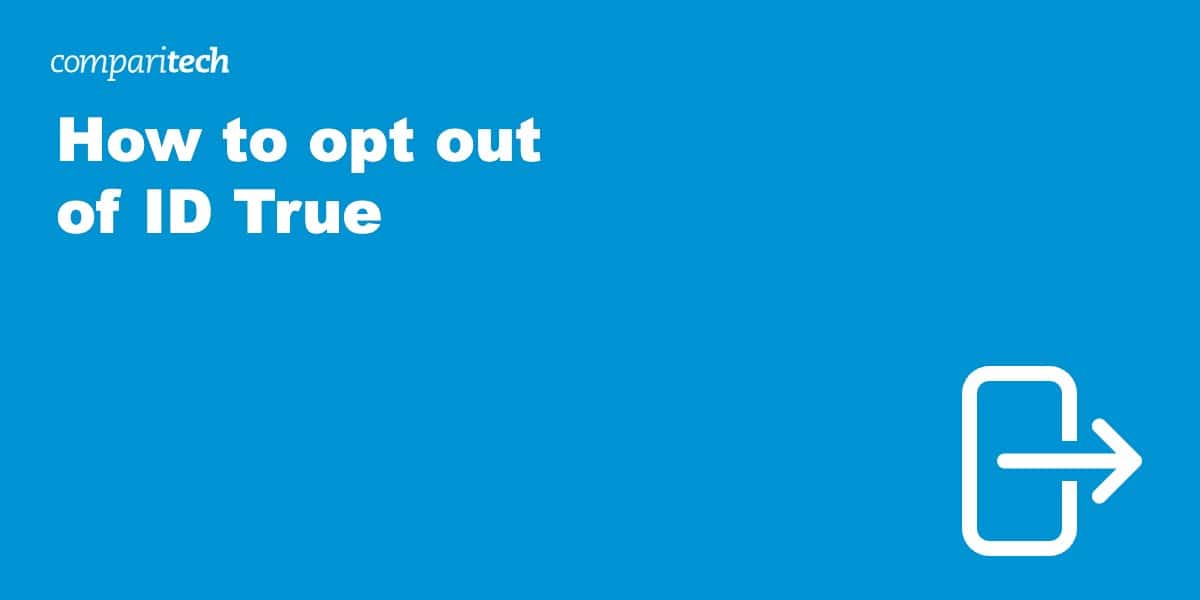ID True is a public records search engine that provides background reports on almost anyone in the US. Just some of the information it can give includes a person’s current address, phone number, and criminal record. ID True suggests that its service can be used to find family, check out neighbors, and reconnect with former classmates. While a person’s intentions may be innocent, there’s always the concern that such a tool can be used for more nefarious reasons.
The trouble is you might not want strangers accessing your personal information. After all, this data may end up in the hands of cybercriminals, spammers, or even stalkers. Worse still, public records search engines such as Innovis and TruthFinder operate on an opt-out basis. As such, personal information is publicly accessible unless you take the steps to request its removal. Below, we’ll explain how to opt out of ID True and improve your online privacy and security.
It’s important to keep in mind that opting out of ID True won’t remove you from every people search site. While you can manually submit opt out and search removal requests with every platform, this is a slow and often complicated process. An alternative is using a data removal service to automate the process.
Best data removal service to opt out of ID True: Incogni
Incogni is the best data removal service to opt out of ID True. Incogni sends out data deletion requests to some 180+ data brokers on your behalf. What’s more, it’s available in many countries including the US, Canada, UK, and many countries across the European Union. Incogni estimates that it can save you more than 300 hours by automating the process.
This is a subscription-based service that automatically sends data deletion requests to data brokers. In doing so, it uses relevant data privacy laws such as GDPR and CCPA to ensure that data brokers comply with requests. Incogni also revisits each data broker and people search site to make sure your personal information hasn’t resurfaced. Better still, Incogni is very easy to use thanks to its automated process and beginner-friendly dashboard.
Here’s how to use Incogni to opt out of ID True:
- Start by signing up for an Incogni account. You can choose between a monthly (USD $12.99) or annual ($77.88) subscription.
- Provide Incogni with the necessary permissions to submit data deletion requests on your behalf.
- Incogni will now start submitting data deletion requests.
- You can check the status of requests Incogni sends out via the dashboard. It may take a few days (and as much as a month) before you start to see approved requests.
- Incogni will continue to submit data deletion requests on your behalf for as long as you remain a subscriber. This prevents data brokers from regaining access to your data.
BEST DATA REMOVAL SERVICE:Incogni is an affordable and user-friendly data removal service that’s available in multiple countries including the US and UK. It saves you time by automating an otherwise repetitive manual task. You can even try Incogni risk-free thanks to its 30-day money-back guarantee.
How to manually opt out of ID True
You can manually opt out of ID True and doing so is relatively easy, at least compared to some other public records search engines. However, it’s still more work than having a data removal service such as Incogni do it for you, particularly if you have to remove your data from multiple people search sites.
Here’s how to manually opt out of ID True:
- Go to the opt-out request page of the ID True website.
- Enter your first name, last name, and state.
- Select your record for removal from the list.
- Confirm the request by clicking on the link in the email
ID True states that the removal process is free as well as instant. The deletion of your data ensures the information will also be removed from Google, although it might take a few days for Google to re-index the page.
Why should I opt out of ID True?
ID True and other people search engines allow anyone to access your personal information. While ID True states it can be used to find family and classmates, there are very few situations in which having your data on the site is advantageous for you. After all, surely anyone who you want to have your phone number or address already has it. If they don’t, then they can ask you directly – simple!
Having your data on people search sites can compromise your privacy because strangers can access your personal information without your knowledge or consent. Once this data is obtained, it may be used for malicious purposes such as identity theft, cyber stalking, spam and unwanted communications, and scams.
The above can cause even more issues. Depending on the site in question, data can be difficult and time consuming to remove. This can be stressful in itself. If you become the victim of identity theft, there’s the risk of mental and emotional stress, not to mention financial loss. By taking the necessary measures to protect your personal data, you can reduce your risk level.
What information does ID True have about me?
ID True lets a person search for almost anyone in the US. If someone were to type your name or phone number into ID True, they can instantly see information about you (although they’d need to sign up for an account and pay to see the full report).
Here’s some of the information ID True provides:
- Full name
- Age and date of birth
- Current location
- Address history
- Phone numbers
- Email addresses
- Criminal records
- Arrest history
- Sex offender status
- Relatives
- Business associates
- Social media accounts
ID True: FAQs
Can ID True re-add my information after I’ve opted out?
While ID True allows you to instantly remove search results about yourself from its site, it makes no reference as to the possibility of this information being re-added in future. From our experience, public records search engines and other data brokers may re-add your information again in future. It’s for this reason that we recommend you use a data removal service such as Incogni which ensures that not only is your information removed from ID True and other people search sites, it stays off them in future.
Are people search sites legal?
Unfortunately, people search sites are legal in the US. The information they provide is typically collected from publicly available records, be it voter registration records, court records, or marriage or divorce records. It should be noted however that the Fair Credit Reporting Act imposes regulations on how certain data such as credit histories can be used. ID True isn’t FCRA-compliant and, as such, can’t be used for purposes such as credit checks.
Upon searching for a person’s information on ID True, the site issues a reminder not to use this information to stalk or harass anyone. However, it’s hardly an effective deterrent and sites such as this can certainly be used for nefarious purposes.
See also:
L’article How to opt out of ID True est apparu en premier sur Comparitech.







